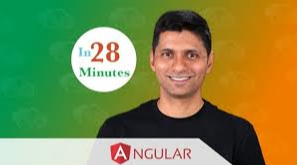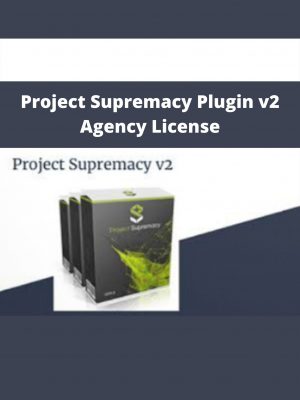Go Java Full Stack with Spring Boot and Angular
$200 Original price was: $200.$40Current price is: $40.
Shopping Instructions:
- DISCOUNT 15% : SHOP15
- Product Delivery: Within 1 – 12 hours after purchase.
In this course, you will learn the basics of full stack web development developing a Basic Todo Management Application using Angular, Spring Boot File size: 5.00 GB
Go Java Full Stack with Spring Boot and Angular
What you’ll learn
You will Develop Your First FULL STACK Application with Angular and Spring Boot
You will learn the Basics of Building AWESOME Frontend Applications with Angular
You will be introduced to Building Great RESTful APIs with Spring Boot
You will Learn to use Spring Security to configure Basic Authentication and JWT
You will learn to Solve the Challenges of Connecting an Angular Frontend to a RESTful API
You will learn the basics of Angular – Angular Modules, Components, Data Binding and Routing
You will learn to connect REST API to JPA/Hibernate with Spring Boot
You will understand the best practices in designing RESTful web services
You will learn to use a wide variety of Spring Boot Starter Projects – Spring Boot Web, and Spring Boot Data JPA
You will learn the magic of Spring Boot – Auto Configuration, Spring Initializr and Starter Projects
You will develop a Todo Management Full Stack Application step by step with login and logout functionalities
You will understand how to make best use of Spring Boot Actuator and Spring Boot Developer Tools
You will learn to secure RESTful API with Spring Boot and Spring Security
Course content
Expand all 118 lectures10:45:18
–Introduction
02:47
Introduction
Preview
02:47
–Quick Overview of Modern JavaScript, TypeScript and Angular
23:29
Step 000 – Getting Started with the Course
Preview
03:13
Step 01 – Understanding Full Stack Application Architecture
04:06
Step 02 – Quick Overview of Modern JavaScript and TypeScript
05:35
Step 03 – Installing Angular CLI – Awesome Tool to create Angular Projects
05:03
Step 04 – Creating and Launching Angular Application with Angular CLI
05:32
–Getting Hands on With Angular
03:01:55
Step 05 – Importing Angular App into Visual Studio Code
02:56
Step 06 – Exploring Angular CLI Commands – test, lint, e2e, serve, build
10:43
Step 07 – Exploring Angular CLI Project Structure
06:47
Step 08 – Introduction to Angular Components – Basics
Preview
06:14
Step 09 – Introduction to Angular Components – Playing with AppComponent
04:03
Step 10 – Generating Welcome Component with ng generate
07:54
Step 11 – Language Variations With an Example – Java, JavaScript and TypeScript
09:00
Step 12 – Generating and Setting up Login Component
05:42
Step 13 – Understanding Event Binding – Adding click event on Login Page
05:29
Step 14 – Using ngModel with 2 Way Data Binding in Login Page
Preview
04:37
Step 15 – Quick Review of Data Binding Approaches
05:20
Step 16 – Adding Hardcoded Authentication to Logic Component – ngIf directive
05:55
Step 17 – Implementing Routes for Login, Welcome and Error Components
07:51
Step 18 – Implementing Routing from Login to Welcome Component
05:30
Step 19 – Adding Route Parameter for Welcome Component
06:07
Step 20 – Create List Todos Component with ng generate
08:08
Step 21 – Create a Link to Todos in Welcome Component
02:20
Step 22 – Best Practice – Create a Todo Class
05:24
Step 23 – Quick Introduction to Angular Modules
05:30
Step 24 – Understanding Bootstrapping of Angular App with Root Module and Compon
04:51
Step 25 – Quick Review – Angular Modules and Components
03:14
Step 26 – Overview of Next Few Steps – Bootstrap, Menu, Footer and Refactoring
00:46
Step 27 – Adding Bootstrap Framework and Creating Components for Menu and Footer
05:02
Step 28 – Using Bootstrap to Create a Menu with Navigation Links
05:33
Step 29 – Styling Footer and Other Components with CSS and Bootstrap
06:31
Step 30 – Good Practice – Use RouterLink instead of href for Routes
02:10
Step 31 – Creating an Independent Authentication Service Component
Preview
07:59
Step 32 – Using Session Storage to Store User Authentication Token
05:22
Step 33 – Enabling Menu Links Based on User Authentication Token
06:36
Step 34 – Implementing Logout to remove User Authentication Token
04:52
Step 35 – Securing Components using Route Guards – Part 1
05:54
Step 36 – Securing Components using Route Guards – Part 2
04:29
Step 37 – Quick Review – Authentication Service, Dependency Injection and Route
03:06
–Introduction to Web Services and REST
24:28
Step 41 – What is a Web Service?
06:08
Step 42 – Important How Questions related to Web Services
06:41
Step 43 – Web Services – Key Terminology
04:13
Step 44 – Introduction to RESTful Web Services
07:26
–Getting Up and Running with REST and Spring Boot
27:19
Step 45 – Initializing a RESTful Services Project with Spring Boot
05:35
Step 46 – Creating a Hello World Service
04:51
Step 47 – Enhancing the Hello World Service to return a Bean
05:30
Step 48 – Quick Review of Spring Boot Auto Configuration and Dispatcher Servlet
08:05
Step 49 – Enhancing the Hello World Service with a Path Variable
03:18
–Connecting Angular Frontend to Spring Boot Restful Services
02:18:24
Step 50 – Connecting Angular Frontend with Restful API – 1 – Creating Data Servi
07:30
Step 51 – Connecting Angular Frontend with Restful API – 2 – HttpClientModule an
04:22
Step 52 – Connecting Angular Frontend with Restful API – 3 – Understanding Obser
06:27
Step 53 – Connecting Angular Frontend with Restful API – 4 – Understanding Subsc
08:25
Step 54 – Connecting Angular Frontend with Restful API – 5 – Handling Error Resp
04:57
Step 55 – Calling Welcome HTTP Service with Path Variables
03:42
Step 56 – Designing RESTful Services for Todo Resource
02:38
Step 57 – Creating REST API for retrieving Todo List
10:12
Step 58 – Connecting Angular Frontend with Todo List RESTful Service
06:23
Step 59 – Creating REST API to delete a Todo – 1 – Create DELETE Request Method
07:11
Step 59 – Creating REST API to delete a Todo – 2 – Execute DELETE Request Method
02:49
Step 60 – Adding Delete Todo Feature to Angular Frontend
08:45
Step 61 – Creating Todo Component and Handle Routing
05:10
Step 62 – Designing Todo Page with Bootstrap Framework
03:53
Step 63 – Creating Retrieve Tod0 Service and Connect Angular Frontend
06:59
Step 64 – Improve Todo Page Appearance
05:09
Step 65 – Creating REST API for Updating Todo – PUT Request Method
05:02
Step 66 – 1 – Creating REST API for Creating a Todo – POST Request Method
08:52
Step 66 – 2 – RESTful Web Services – Best Practices
03:29
Step 67 – Implementing Update Todo Feature in Angular Frontend
06:39
Step 68 – Implementing New Todo Feature in Angular Frontend
07:02
Step 69 – Improving Todo Form – Validation and Form Submit on Enter – ngSubmit
06:16
Step 70 – Enhancing Validation Messages on Todo Page
06:32
–Implementing Basic Authentication with Spring Boot and Spring Security
01:04:11
Step 71 – Overview of Security with Basic Auth and JWT
02:00
Step 72 – Setting up Spring Security
05:30
Step 73 – Configure standard userid and password
02:23
Step 74 – Enhancing Angular Welcome Data Service to use Basic Auth
07:23
Step 75 – Configure Spring Security to disable CSRF and enable OPTION Requests
05:44
Step 76 – Creating Angular HttpInterceptor to add Basic Auth Header
06:15
Step 77 – Configure HttpInterceptor as Provider in App Module
02:18
Step 78 – Create Basic Authentication RESTful Service in Spring Boot
02:55
Step 79 – Create Angular Basic Authentication Service
05:35
Step 80 – Connect Login Page to Basic Authentication Service – Part 1
07:09
Step 81 – Connect Login Page to Basic Authentication Service – Part 2
03:11
Step 82 – Refactoring Angular Basic Authentication Service
03:06
Step 83 – Refactoring HttpInterceptor to use Basic Authentication Token
05:23
Step 84 – Best Practice – Use Constants for URLs and Tokens
05:19
–Connecting Spring Security and Spring Boot with JWT Framework
42:13
Step 85 – Introduction to JWT
05:32
Step 86 – Importing JWT Framework into Eclipse
07:36
Step 87 – Quick Tip – Resolving JWT Compilation Errors
01:10
Step 88 – Executing JWT Resources – Get Token and Refresh Token
05:45
Step 89 – Understanding JWT Spring Security Framework Setup
12:01
Step 90 – Creating a New User with Encoded Password
03:23
Step 91 – Using JWT Token in Angular Frontend
06:46
–Connecting Spring Boot RESTful API With JPA and Hibernate
24:39
Step 92 – Setting up Todo Entity and Populating Data
09:55
Step 93 – Connecting GET REST APIs to JPA Repository
09:20
Step 94 – Connecting POST, PUT and DELETE REST APIs to JPA Repository
05:24
–Thank You!
02:37
Step 999 – Full Stack Application with Angular and Spring Boot – Conclusion
00:59
Bonus Lecture
01:38
2 more sections
Requirements
You have an attitude to learn while having fun 🙂
You have some programming experience with JavaScript, Java and Spring.
We will help you learn the basics of Modern JavaScript, TypeScript, Spring Boot and JPA
We will help you install Chrome, Eclipse, Visual Studio Code and Node JS (for npm)
Description
Welcome to this Amazing Course on Full Stack Web Development with Angular and Spring Boot. This course is designed to be a Perfect First Step as an Introduction to Angular and Full Stack Development for Java & Spring Developers.
Zero Experience with Angular, TypeScript and Modern JavaScript? No Problem. Start Learning Now!
******* Some Amazing Reviews From Our Learners *******
★★★★★ This is the perfect course for Java developers to use to get familiar with Angular and do it beyond just an elementary kind of familiarity. Very good job, instructor. Thank you!
★★★★★ Yes the Journey was Amazing, the Tutor is Awesome. Not a single doubt & error i faced while following Step-by-Step videos. I would suggest this course to all those who really want to Learn Spring Boot + Angular. The Explanation was clear and systematic. I would like to thank Mr. Rangakaran as he is the best Tutor… 🙂
★★★★★ Wonderful course with practical content taught in a very intuitive way; building from lesson to lesson. As a web application developer with some experience in both Spring Boot and Angular, this course was perfect when providing a clear way use both technologies together. I really appreciate this instructor, and look forward to more courses.
★★★★★ Video explanations clear and easy to follow. Recommended!
★★★★★ Very good course. The instructor is very knowledgeable about the material and walks you through it in a clear way. Good start to learning about Full Stack development.
★★★★★ Awesome explanation, great course specially for Java developer who wants to groom herself/himself to full stack java development using Spring boot and Angular.
******* Course Overview *******
Developing your first full stack web application with Angular and Spring Boot is fun.
In this course, you will learn the basics of full stack web development developing a Basic Todo Management Application using Angular, Spring Boot, and Spring Security Frameworks. You will build the Todo Management Application step by step – in more than 100 steps.
You will be using Angular (Frontend Framework), TypeScript Basics, Angular CLI(To create Angular projects), Spring Boot (REST API Framework), Spring (Dependency Management), Spring Security (Authentication and Authorization – Basic and JWT), BootStrap (Styling Pages), Maven (dependencies management), Node (npm), Visual Studio Code (TypeScript IDE), Eclipse (Java IDE) and Tomcat Embedded Web Server.
We will help you set up each one of these.
Angular is a complete front end framework with a wide range of features. Spring Boot is an awesome framework to build RESTful API and Microservices. Let’s combine these frameworks and create an awesome full stack web application.
******* What You Can Expect from Every in28Minutes Course *******
in28Minutes created 20 Best Selling Courses providing Amazing Learning Experiences to 250,000 Learners across the world.
Each of these courses come with
✔ Amazing Hands-on Step By Step Learning Experiences
✔ Real Project Experiences using the Best Tools and Frameworks
✔ Awesome Troubleshooting Guides with 200+ FAQs Answered
✔ Friendly Support in the Q&A section
✔ Free Udemy Certificate of Completion on Completion of Course
~~~ Here are a Few Reviews on The in28Minutes Way ~~~
★★★★★ Excellent, fabulous. The way he has prepared the material and the way he teaches is really awesome. What an effort .. Thanks a million
Get immediately download Go Java Full Stack with Spring Boot and Angular
★★★★★ A lot of preparation work has taken place from the teacher and this is visible throughout the course.
★★★★★ This guy is fantastic. Really. Wonderful teaching skills, and goes well out of his way to make sure that everything he is doing is fully understood. This is the kind of tutorial that gets me excited to work with a framework that I may otherwise not be.
★★★★★ The best part of it is the hands-on approach which the author maintained throughout the course as he had promised at the beginning of the lecture. He explains the concepts really well and also makes sure that there is not a single line of code you type without understanding what it really does.
★★★★★ I also appreciate the mind and hands approach of teaching something and then having the student apply it. It makes everything a lot clearer for the student and uncovers issues that we will face in our project early.
★★★★★ Amazing course. Explained super difficult concepts (that I have spent hours on the internet finding a good explanation) in under 5 minutes.
Start Learning Now. Hit the Enroll Button!
******* Step By Step Details *******
Overview
Step01 – Understanding Full Stack Application Architecture
Step02 – Quick Overview of Modern JavaScript and TypeScript
Step03 – Installing Angular CLI – Awesome Tool to create Angular Projects
Step04 – Creating and Launching Angular Application with Angular CLI
Step05 – Importing Angular App into Visual Studio Code
Step06 – Exploring Angular CLI Commands – test, lint, e2e, serve, build
Step07 – Exploring Angular CLI Project Structure
Getting Hands on With Angular
Step08 – Introduction to Angular Components – Basics
Step09 – Introduction to Angular Components – Playing with AppComponent
Step10 – Generating Welcome Component with ng generate
Step11 – Language Variations With an Example – Java, JavaScript and TypeScript
Step12 – Generating and Setting up Login Component
Step13 – Understanding Event Binding – Adding click event on Login Page
Step14 – Using ngModel with 2 Way Data Binding in Login Page
Step15 – Quick Review of Data Binding Approaches
Step16 – Adding Hardcoded Authentication to Logic Component – ngIf directive
Step17 – Implementing Routes for Login, Welcome and Error Components
Step18 – Implementing Routing from Login to Welcome Component
Step19 – Adding Route Parameter for Welcome Component
Step20 – Create List Todos Component with ng generate
Step21 – Create a Link to Todos in Welcome Component
Step22 – Best Practice – Create a Todo Class
Step23 – Quick Introduction to Angular Modules
Step24 – Understanding Bootstrapping of Angular App with Root Module and Component
Step25 – Quick Review – Angular Modules and Components
Step26 – Overview of Next Few Steps – Bootstrap, Menu, Footer and Refactoring
Step27 – Adding Bootstrap Framework and Creating Components for Menu and Footer
Step28 – Using Bootstrap to Create a Menu with Navigation Links
Step29 – Styling Footer and Other Components with CSS and Bootstrap
Step30 – Good Practice – Use RouterLink instead of href for Routes
Step31 – Creating an Independent Authentication Service Component
Step32 – Using Session Storage to Store User Authentication Token
Step33 – Enabling Menu Links Based on User Authentication Token
Step34 – Implementing Logout to remove User Authentication Token
Step35 – Securing Components using Route Guards – Part 1
Step36 – Securing Components using Route Guards – Part 2
Get immediately download Go Java Full Stack with Spring Boot and Angular
Step37 – Quick Review – Authentication Service, Dependency Injection and Route Guards
Introduction to Web Services and REST
Step41 – What is a Web Service?
Step42 – Important How Questions related to Web Services
Step43 – Web Services – Key Terminology
Step44 – Introduction to RESTful Web Services
Getting Up and Running with REST and Spring Boot
Step45 – Initializing a RESTful Services Project with Spring Boot
Step46 – Creating a Hello World Service
Step47 – Enhancing the Hello World Service to return a Bean
Step48 – Quick Review of Spring Boot Auto Configuration and Dispatcher Servlet – What’s happening in the background?
Step49 – Enhancing the Hello World Service with a Path Variable
Connecting Angular Frontend to Spring Boot Restful Services
Step50 – Connecting Angular Frontend with Restful API – 1 – Creating Data Service
Step51 – Connecting Angular Frontend with Restful API – 2 – HttpClientModule and HttpClient
Step52 – Connecting Angular Frontend with Restful API – 3 – Understanding Observable
Step53 – Connecting Angular Frontend with Restful API – 4 – Understanding Subscribe
Step54 – Connecting Angular Frontend with Restful API – 5 – Handling Error Responses
Step55 – Calling Welcome HTTP Service with Path Variables
Step56 – Designing RESTful Services for Todo Resource
Step57 – Creating REST API for retrieving Todo List
Step58 – Connecting Angular Frontend with Todo List RESTful Service
Step59 – Creating REST API to delete a Todo – DELETE Request Method
Step60 – Adding Delete Todo Feature to Angular Frontend
Step61 – Creating Todo Component and Handle Routing
Step62 – Designing Todo Page with Bootstrap Framework
Step63 – Creating Retrieve Tod0 Service and Connect Angular Frontend
Step64 – Improve Todo Page Appearance
Step65 – Creating REST API for Updating Todo – PUT Request Method
Step66 – Creating REST API for Creating a Todo – POST Request Method
Step67 – Implementing Update Todo Feature in Angular Frontend
Step68 – Implementing New Todo Feature in Angular Frontend
Step69 – Improving Todo Form – Validation and Form Submit on Enter – ngSubmit
Step70 – Enhancing Validation Messages on Todo Page
Implementing Spring Security with Basic Authentication
Step71 – Overview of Security with Basic Auth and JWT
Step72 – Setting up Spring Security
Step73 – Configure standard userid and password
Step74 – Enhancing Angular Welcome Data Service to use Basic Auth
Step75 – Configure Spring Security to disable CSRF and enable OPTION Requests
Step76 – Creating Angular HttpInterceptor to add Basic Auth Header
Step77 – Configure HttpInterceptor as Provider in App Module
Step78 – Create Basic Authentication RESTful Service in Spring Boot
Step79 – Create Angular Basic Authentication Service
Step80 – Connect Login Page to Basic Authentication Service – Part 1
Step81 – Connect Login Page to Basic Authentication Service – Part 2
Step82 – Refactoring Angular Basic Authentication Service
Step83 – Refactoring HttpInterceptor to use Basic Authentication Token
Step84 – Best Practice – Use Constants for URLs and Tokens
Connecting Spring Security with JWT
Step85 – Introduction to JWT
Step86 – Importing JWT Framework into Eclipse
Step87 – Quick Tip – Resolving JWT Compilation Errors
Step88 – Executing JWT Resources – Get Token and Refresh Token
Step89 – Understanding JWT Spring Security Framework Setup
Step90 – Creating a New User with Encoded Password
Step91 – Using JWT Token in Angular Frontend
Connecting REST API With JPA and Hibernate
Step92 – Setting up Todo Entity and Populating Data
Step93 – Connecting GET REST APIs to JPA Repository
Step94 – Connecting POST, PUT and DELETE REST APIs to JPA Repository
Start Learning Now. Hit the Enroll Button!
Who this course is for:
You want to develop your first full stack application with Angular and Spring Boot
You are a Java Developer aiming to get started with Full Stack Development with Angular and Spring Boot
You are a Spring Boot Developer looking to Build a Full Stack Application with Angular
You want to learn the fundamental building blocks of Angular Frontend Framework
You want to learn to build basic RESTful API and Services with Spring Boot Framework
You want to learn how to Secure REST API with Spring Boot and Spring Security with Basic Authentication and JWT
Related products
SEO & Design Website
SEO & Design Website
SEO & Design Website
SEO & Design Website
SEO & Design Website
SEO & Design Website
SEO & Design Website
SEO & Design Website












